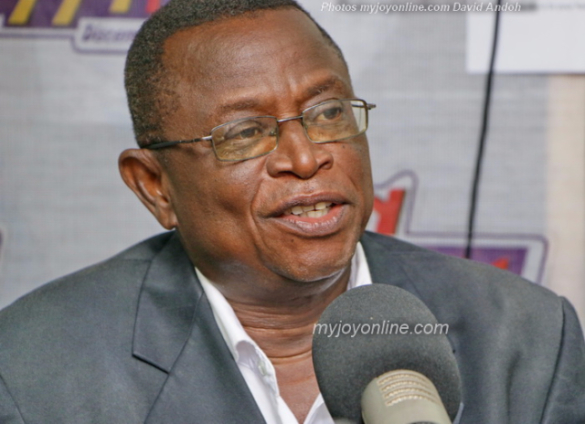Senior Research Fellow at the Institute for Democratic Governance (IDEG), Professor Kwesi Jonah, has addressed some concerns that have emerged over the sincerity of commitment to the Presidential Peace Pact signed by both flagbearers of the incumbent NPP and opposition NDC.
The Pact, which was prepared by the National Peace Council, is to ensure that President Nana Akufo-Addo and the National Democratic Congress' (NDC) John Dramani Mahama, collectively agree to a violent-free election come December 7.
Amongst other things, it is also to establish that the leaders will seek redress using the judicial process, in the event of any electoral dispute.
Although the exercise is the third one in eight years, several concerns have been raised over the sincerity of their commitment to the pact.
Paramount amongst these is the contention that the entire process is only a façade of a formality ahead of the Presidential race.
But speaking on Joy News' Top Story Friday, Prof. Jonah quizzed the logic and asked that they be dismissed on grounds that such argument is unfounded.
“It is not fair to the very fine gentlemen, His Excellency John Dramani Mahama and His Excellency Nana Akufo-Addo. These are seasoned politicians who will not append their signatures to a document just for the sake of it.
"If they know that they won’t abide by the commitment they’re making, they will not make them. And so those who say that are just insulting the intelligence of these gentlemen,” he said.
Addressing what many have describes as reality; violence during elections despite having signed a peace pact prior, Prof. Jonah explained that it is the responsibility of party leaderships to call supporters to order in the face of threats of violence.
"Signing a peace pact does not mean members in all corners where a political party has a branch will equally come to a political consensus.
"What leadership can do is to preach peace to their supporters and to quickly interfere when people engage in violence either at the local level or the national level".
He advised that Ghanaians take a cue from the 2012 Presidential elections, where the New Patriotic Party (NPP), then opposition, resorted to judicial processes to probe the credibility of the electoral results.
Latest Stories
-
ECG Power Queens support Ho Female Prison
56 minutes -
Don’t appoint a new EC Chair; allow Jean Mensa to work – Prof. Stephen Adei to Mahama
1 hour -
Bayer Leverkusen’s Jeremie Frimpong arrives in Ghana for visit
2 hours -
‘It will be disastrous if Mahama removes the Chief Justice’ – Prof. Stephen Adei
2 hours -
Jean Mensa must step down as EC Chair – APC and Movement for Change assert
2 hours -
Akufo-Addo calls on police to refine strategies to avoid prolonged electoral unrest
2 hours -
Only NPP looting brigade unhappy about ORAL – Ablakwa
2 hours -
CSIR-SARI introduces integrated soil fertility management technology to boost maize production
2 hours -
Ghana’s indigenous agribusiness faces challenges impacting economic growth – Dr. Azinu
2 hours -
41-year-old man arrested over illegal power connection
2 hours -
65-year-old man plans to walk over 250-km Kumasi-Accra journey for Mahama’s swearing-in
2 hours -
Woman dies after being set on fire on NYC subway
4 hours -
Elon Musk’s curious fixation with Britain
4 hours -
EBID wins the Africa Sustainability Award
6 hours -
Expansion Drive: Takoradi Technical University increases faculties
10 hours

